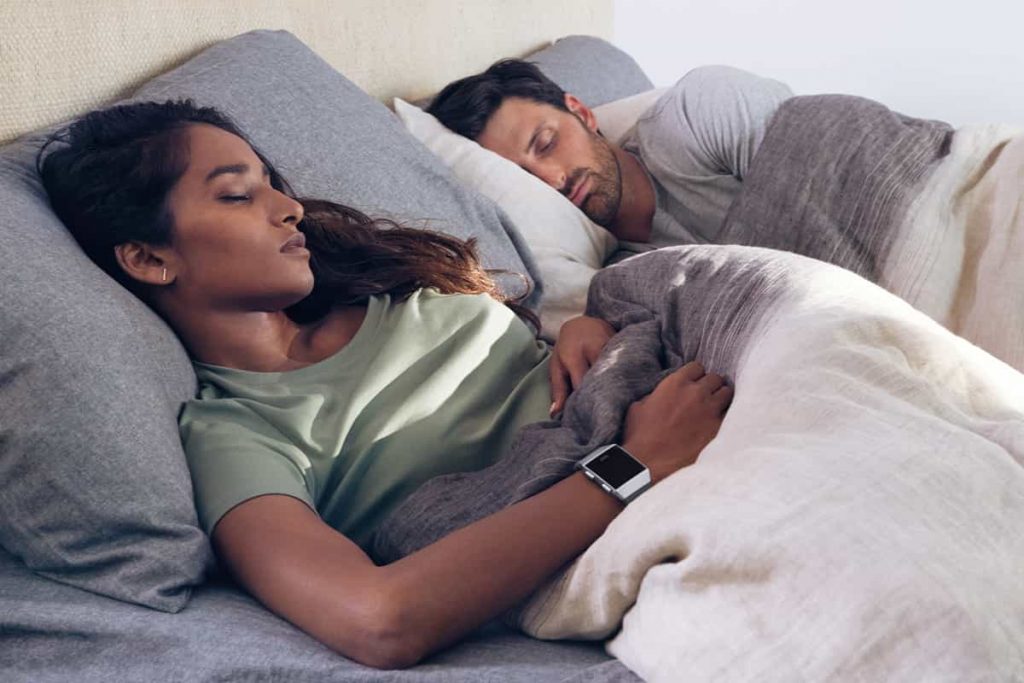Sleep apnea is a serious disorder in which your airway becomes obstructed while you sleep, causing you to jolt for breath and wake up abruptly. You may not remember these disturbances the next day, but you may wake up with a headache or feel lethargic during the daytime.
With sleep apnea, your tongue and other soft tissues periodically fall back and collapse the airway, sometimes totally, sometimes only partially. As a result, breathing stops or becomes very shallow, causing oxygen levels in the blood to fall and carbon dioxide levels to rise. As you struggle to breathe, your throat muscles contract, resulting in a gasp or snort of air, and breathing starts again. This pattern may be repeated hundreds of times a night. People who snore loudly and chronically often have sleep apnea.
Though it’s a common condition, sleep apnea often goes undiagnosed because people don’t realize that they have this problem. Family members may tell you that you stop breathing at night and snore explosively. But if you sleep alone, you may not even know that you snore.
Sleep apnea robs you of restorative sleep called REM (rapid eye movement) sleep. This can lead to daytime drowsiness, irritability, memory problems, and difficulty concentrating. Because of daytime drowsiness, people with sleep apnea are seven times more likely than average to be in traffic accidents. Apnea may also increase the risk of hypertension, stroke, heart attack, irregular heartbeat, and other cardiovascular hazards, as well as diabetes and other conditions. In rare cases, especially among the elderly, sleep apnea may lead to severe respiratory failure and death.
Table of Contents
What causes sleep apnea?

There are two types of sleep apnea.
Central sleep apnea, the less common type, occurs when the brain doesn’t send proper signals to the muscles that control breathing.
Obstructive sleep apnea, the more common type, is specifically caused by a temporary blockage of the breathing passages.
People who are overweight and over 40 are at higher risk of obstructive sleep apnea because muscles at the back of the throat relax with age and weight gain. But anything that reduces the size of the airway can lead to apnea, including a large neck circumference, a fat tongue, nasal congestion, or a deviated septum. Men are more likely to develop sleep apnea than women, but a woman’s risk increases with menopause. Drinking alcohol before before bedtime and using sedatives can also increase the risk of sleep apnea.
What if you do nothing?
Sleep apnea usually doesn’t improve without some form of intervention. Without treatment, you put yourself at risk of serious health consequences.
Home remedies for sleep apnea
If you suspect that you have sleep apnea, tell your doctor. If you’re diagnosed with the disorder, there is no simple solution, but these self-help measures should help. Some are the same techniques used to help people stop snoring.
Lose weight. This is the one measure that may have the most benefit. Even a 10-percent reduction should help.
Cut back on alcohol. Don’t drink alcoholic beverages in the evening. Also try not to eat heavy meals in the evening.
Avoid taking any sort of sedative, including sleeping pills or tranquilizers.
If you smoke, stop.
Elevate your head when sleeping. You can try a wedge pillow that can elevate your head and neck some 10 inches.
Avoid sleeping on your back. This helps keep the tongue from falling back and pressing against the airways. Positioning a body pillow against your back may help you stay on your side.
How to prevent sleep apnea
The measures above, especially losing weight, may also help prevent sleep apnea.
When to call your doctor about sleep apnea
Contact your doctor if you or family members become aware that you are showing signs of sleep apnea, especially if you are overweight or have high blood pressure.
What your doctor will do
If you have sleep apnea, your doctor may prescribe treatment with a CPAP (continuous positive airway pressure) mask. This is an air pump attached to a mask via tubing, which is very effective at keeping your throat open while you sleep. The devices have been improved in recent years—and are now less cumbersome, quieter, and less likely to cause claustrophobia.
There are also custom-made mandibular advancement devices made by dentists who specialize in sleep apnea. These devices pull the tongue and jaw (mandible) forward while you sleep. Some reviews have found they are not as effective as CPAP, though compliance rates tend to be higher.
A device called Provent, sold by prescription, may be a more manageable alternative to CPAP for mild sleep apnea. It consists of two small patches with valves that you insert into each nostril at night. Though not much is known about its effectiveness, a company-sponsored study found that Provent decreased apnea episodes.
Provent is probably best used only under certain circumstances, such as if you are traveling and can’t or don’t want to take the bulky CPAP machine with you.
What about medication or surgery? A Cochrane review on drug therapy for sleep apnea concluded that while small studies have found short-term benefits from a wide range of drugs, there’s insufficient evidence to recommend them. More research is needed. And surgery for sleep apnea should be considered only as a last resort. The standard procedure widens the airway or corrects other physical problems that contribute to sleep apnea. This is major, painful surgery that can have adverse effects and doesn’t help everyone. There are also less invasive options, notably laser surgery and something called the Pillar procedure, in which three tiny inserts are implanted into the soft palate in the back of the mouth.
Also Read:
- Get To Learn More About The Interesting Facts About Sleep Apnea
- Sleep Apnea Risk Factors
- Sleep Terrors in Adults: Everything You Need to Know




